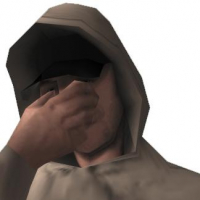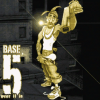Bloods Gang Skins


























-
dfiles.euDownload
Cool Bloods gang skins from Los Angeles.
Some information about it (taken from Wikipedia)
History of creation
In 1971, the Crips, a powerful gang controlling over half of the gang areas in Compton and about a third in Inglewood, began a war with other African American gangs from the suburbs of Los Angeles, the largest of which were L.A. Brims, Bishops, and Athens Park Boys.
The large black gang Piru Street Boys (also known as Pirus) was actually part of the Crips until 1972 and was called Piru Street Crips. In the summer of 1972, a feud began between the Pirus and other Crips factions.
The Pirus gang, like other groups in the suburbs of Los Angeles, could not compete with the Crips gang, which significantly outnumbered them and was better equipped and territorially dominant. Therefore, in the fall, the Pirus organized a meeting to which all gangs that had been attacked by the Crips were invited. At this meeting, the creation of a new alliance that could oppose the Crips was discussed. Red was chosen as the identifying color of the allies, hence their name - Bloods.
Individual factions of the confederation (of 3 or more members) are called sets or trays. Although the coalition consists only of African American gangs, some sets are partially or entirely composed of Latinos, Asians, and whites. Whites can also be found in the main composition of the gang.[1]
Like the Crips, the Bloods coalition has its own slang and its own alphabet (the English alphabet with modified symbols). Using these symbols, gang members mark their territory with spray paint, leaving tags. In Bloods slang, the name of the Crips gang is referred to as Crabs, and the Bloods call themselves Crab Killaz, or simply CK'z.
A dance called B-Walk (Blood-Walk), analogous to the C-Walk (Crip-Walk) of the Crips gang, also emerged among the Bloods. The difference in B-Walk is the altered foot movements and hand movements, which are almost absent in C-Walk.[2]
Primarily, the Bloods engage in drug trafficking, robberies, and murders. After the Piru Street Boys gang left the coalition due to internal disagreements in 2004, a truce agreement between the Bloods and Crips was reached, but it can be considered formal.
Классные скины банды Bloods из Лос-Анджелеса.
Немного информации о ней (взято с википедии)
История создания
В 1971-ом году Crips (англ. crips - калеки), мощная банда, контролировавшая более половины бандитских районов в Комптоне и примерно треть в Инглвуде, начала войну с другими aфроамериканскими бандами из пригородов Лос-Анджелеса, самыми крупными из которых являлись L.A. Brims, Bishops и Athens Park Boys.
Крупная черная банда Piru Street Boys (Также Pirus) фактически до 1972-го года была частью Crips и называлась Piru Street Crips. Летом 1972-го года между Pirus и другими группировками Crips началась вражда.
Банда Pirus, как и другие группировки в пригородах Лос-Анджелеса, не могла конкурировать с бандой Crips, значительно превосходившей их по численности, обеспеченности и территориально. И поэтому осенью Pirus организовали встречу, на которую были приглашены все банды, подвергавшиеся нападениям со стороны Crips. На этой встрече обсуждался вопрос о создании нового альянса, который мог бы противостоять Crips. В качестве опознавательного цвета союзников был выбран красный, отсюда и их название - Bloods (англ. bloods — кровавые, красные). Позже многие другие банды, враждовавшие с Crips, присоединялись к альянсу Bloods.
Отдельные группировки конфедерации (от 3 и более членов), называются сетами (англ. sets) или треями (англ. trays). Несмотря на то, что в коалицию входят только афроамериканские банды, отдельные сеты состоят как частично, так и полностью из латиноамериканцев, азиатов и белых. Белых также можно встретить и в основном составе банды.[1]
Так же, как и Crips, коалиция Bloods имеет свой сленг и свой алфавит (Английский алфавит с видоизмененными символами). Используя эти символы, члены банды отмечают свою территорию с помощью аэрозольной краски, оставляя тэги. На сленге Bloods название банды Crips звучит как Crabs, а сами Bloods называют себя Crab Killaz, или просто CK'z.
Также в среде банды появился танец B-Walk, (Blood-Walk), являющийся аналогом C-Walk (Crip-Walk) у банды Crips. Отличие B-Walk'а — изменённые движения ногами и движения руками, практически отсутствующие в C-Walk’е.[2]
В основном Bloods занимаются торговлей наркотиками, грабежами и убийствами. После того, как в 2004 году банда Piru Street Boys из-за внутренних разногласий вышла из коалиции, было принято соглашение о перемирии между Bloods и Crips, но его можно считать формальным.




